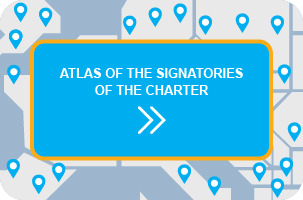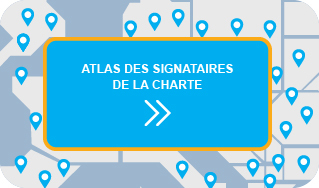Renovating Europe’s Charter for local equality: bringing gender equality closer to home, one municipality at a time
Gender equality is not something that can be decreed in a top-down way, nor something we can achieve in isolation. Rather, it is an issue which involves all of us – men and women, boys and girls, and all levels of society and government – in a common struggle for equal opportunities and fundamental rights.
It is in this spirit that CEMR has promoted gender equality in our municipalities and regions. In particular, the European Charter for Equality of Women and Men in Local Life was promulgated to support local and regional governments’ efforts to act proactively to create gender equality. Today, over 1850 signatories in 36 countries are committed to promoting gender equality in their locality.
Renovating the Charter
Fifteen years have passed since the original text of the Charter was first presented to a group of local leaders in Innsbruck, Austria. Naturally, the world has changed a great deal since then, not least with the rise of the Internet, the sustainability agenda and the #MeToo movement against sexual harassment and abuse. The COVID pandemic has also led to a disproportionate private and professional burdens fall on women, as well as a rise in domestic violence.
That’s why, through webinars and interviews, we have been consulting with members and partners on how to revitalise the Charter. The conclusions of our reflection process were presented at a seminar on 7 March, on the eve of International Women’s Day, along with a report with recommendations for concrete improvements to introduce to the text in 2022.
The new text of the Charter will now deal with topics such as the Sustainable Development Goals (SDGs) and the environment, digitalisation (notably online harassment), intersectionality, COVID and public procurement. We are also upgrading the communications tools promoting the Charter.
Our aim is to continue reaching new generations of leaders and administrators who have made it their mission to make their territory gender-equal and to keep the Charter relevant to the new trends and challenges of this century.
A tool for local action
The Charter is not simply a declaration of intent but a practical tool that can help municipalities and regions in the quest for equality. In October 2021, the Association of Polish Cities held an event in which 16 Polish municipalities joined the Charter for Equality in a collective signing ceremony.
This was a powerful moment federating like-minded governments and other players, at a time when the national government has been hostile to women’s rights and, concerning abortion, put their very lives at risk. This municipal movement, spearheaded by the city of Poznań, shows how local leaders can use the Charter to challenge a regressive national narrative.
Meanwhile, that same year, the city of Graz in Austria celebrated 20 years of local action promoting gender equality. Graz reinforced its commitment by signing the Charter in 2012 and has been regular and ambitious in producing gender action plans. In fact, Graz’s third gender action plan was adopted in 2021 and will guide the work for the next several years.
Join the movement
This work remains as relevant as ever. Any municipalities, counties and regions who would like to be part of the local movement to promote gender equality in Europe should sign the Charter today. You can benefit from the upcoming improved text and the ever-expanding support resources provided to signatories by CEMR and its member associations.















